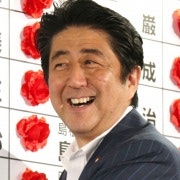Romney's war on China
A bubbling theme of the US election has been the rise of China and its impact on the US. The town hall style of yesterday's debate – where the audience could ask questions on issues of concern – served to confirm that this is a topic of increasing importance to the average American voter. It also gave both candidates the opportunity to outline definitively their views on the subject.
Romney repeated his pledge that he will take action ‘on day one' to charge China as a currency manipulator, for keeping the renminbi artificially low, and impose tariffs if China does not submit. He implied that the US would reduce its borrowing from China by cutting the budget deficit, through cutting the size of government.
Romney also claimed he can reduce the large US-China trade deficit, making US business more competitive with reduced government regulation.
Romney advocating for greater protectionism in US trade policy is a complete contradiction of a speech he gave in 2009, where he criticised the Obama administration for imposing retaliatory tariffs on Chinese tyre imports, and supported a neoliberal, free trade attitude towards China.
This suited him at the time, as he was head of private equity firm Bain Capital, which is well known for restructuring companies and outsourcing jobs to low-wage Chinese factories.
Obama countered by reaffirming that the tyre tariff had actually saved over a thousand jobs. But last month his administration let it quietly expire.
The tariff has in fact cost US consumers over $1 billion in higher tyre costs, and China's response was to impose its own tariffs on US poultry imports, which cost the US at least another $1 billion.
Meanwhile, whereas Obama's recent action against China on its car manufacturing subsidies has been taken through the World Trade Organisation, it seems Romney's plan is to circumvent global multilateral institutions and international law aimed at promoting free trade.
Obama also acknowledged in the debate the reality that low-wage, low-skilled jobs lost overseas to countries like China will not return, and America therefore needs to focus on more skilled labour and higher-value industries to continue recovery in the US economy. Romney failed to come to the same conclusion.
Regarding on foreign policy and defence, Romney also took the opportunity during the debate to repeat his overall criticism of Obama as too weak on national security, using last month's attack on the US embassy in Libya as a tool to spar with.
This stoush ultimately became a stumble for Romney, who managed to get his facts wrong and again let himself be portrayed as politicising a national security crisis.
In defending his record on Libya, the Middle East and terrorism in general, Obama reminded us that he had ended the war in Iraq, and Osama bin Laden had been killed on his watch.
This is certainly not the first time Romney has criticised Obama on matters of defence. He has previously lambasted Obama's ‘pivot' policy of shifting military forces to the Pacific, claiming it neglects America's allies in Europe and the Middle East.
However, Romney's planned $2 trillion increase in military spending includes adding at least 15 more capital ships to the Navy per year. This increase in naval power will be of little use in either Europe or the Middle East, indicating that Romney also implicitly favours an increase of US forces in the Pacific, to potentially counter a rising China.
We have yet to see a full explanation from Romney on the strategic reasons why such a major rise in military spending is actually required, much less how it will be paid for. Moreover, Romney also favours selling F-16 aircraft to Taiwan, which would be sure to provoke Beijing into further belligerence in the South China Sea.
Obama's stronger performance in yesterday's debate may yet halt the momentum in the polls, which brought Romney into striking distance of the White House after the first debate.
But with one more debate to go, the battle's not over yet. Next week's debate will concentrate on foreign policy, with China being one of the five designated topics.
While foreign policy has not been the major focus of this election, there is plenty of scope for both to either project a strong image as commander-in-chief, or stumble on details and contradictions.
The challenge remains for Romney to finally outline his foreign policy position with more clarity, and go beyond talking points.
Given his campaign rhetoric so far though, in promoting his vision of American exceptionalism, Romney threatens to follow the Republican record of Ronald Reagan and George W. Bush – while claiming to support small government, primarily through the supply-side magic of tax cuts skewed to the wealthy, a massive increase in military spending results in a blowout in deficits and debt.
This time around, provoking a trade war with China through increased protectionism could threaten to derail the global economy's weak recovery from the Global Financial Crisis.
The stakes of this US election are high indeed.
Craig Mark is Associated Professor of International Studies at Kwansei Gakuin University.
















